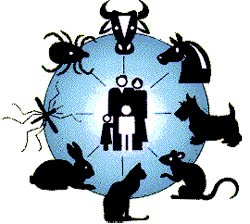UNDIAGNOSED DISEASE AND DEATH, CAMELS - MAURITANIA: REQUEST FOR
INFORMATION
***************************************************************************
A ProMED-mail post
ProMED-mail is a program of the
International Society for Infectious Diseases
Date: Tue 2 Aug 2011
Source: C.R.I.De.M (Carrefour de la Republique Islamique de
Mauritanie)[French, transl., summarised, edited]
A serious threat to camels in Mauritania
----------------------------------------
A serious threat hangs over camels in Mauritania, with farmers calling
for urgent measures combining efforts of national and international
partners. "This is to identify the disease that kills camels, to
prescribe the treatment needed and to apply control measures to
prevent its spread," said Mohamed Lemine, a camel breeder. The
measures are essential to maintain the camel population -- a main
resource of the country for its milk and meat, in addition to its use
in transportation and its striking adaptability to the ecosystem.
Camels have died in recent weeks in several regions of Mauritania:
Guidimgha, Brakna, Gorgol and Trarza. In all cases, the animals had
internal bleeding and respiratory infection, it seems, having wasted
away suddenly presented with bleeding mouth and nose and swelling in
the skull.
The new death toll came after that of winter 2010 in Adrar, which was
caused by Rift valley fever (RVF). Ranchers whose livestock is
currently being affected wondered if the death of camels is caused by
RVF. As they say, camels may well have carried the virus of the Adrar
during their transhumance cycle.
But a vet who examined camels in Trarza suspected pasteurellosis. Is
this an appropriate diagnosis? This is not known at this time.
Pasteurellose is a fatal disease in camels.
"I invited a veterinarian who vaccinated the herd; 2 days later, my
flock is dead," said Mohamed Lemine. He added: "My case has
discouraged farmers from vaccinating their herds. They want reliable
diagnosis to be carried out, preferably in Europe, because they think
the disease has not actually been identified."
Livestock contributes 80 percent of the gross domestic product (GDP)
of the agricultural sector in Mauritania, which includes 1 320 000
cattle, 1 140 000 goats and 10 332 000 sheep.
The Southeast is considered the main breeding area, followed by the
Southwest border of Senegal. In these 2 areas the animals were already
beginning to suffer and to show serious signs of weakness, many
already dead due to lack of pasture consecutive late rains.
If an outbreak of pasteurellosis is added to the environmental
difficulties, the prospects for Mauritanian herders are grim.
--
Communicated by:
Sabine Zentis
Castleview English Longhorns
Gut Laach
D-52385 Nideggen, Germany
cvlonghorns@aol.com
[Diagnosis of the suspected disease is indeed essential and urgent. If
RVF is to be considered, its main victims are expected to be small
ruminants and cattle, though camels may be affected as well. Is that
the case? Obviously, RVF would have serious public health aspects as
well. - Mod.AS]
[The interactive HealthMap/ProMED map for Mauritania is available at:
[see also:
2010
----
Rift Valley fever, livestock - Mauritania (02): OIE 20101219.4478
Rift Valley fever, livestock, human - Mauritania 20101202.4332
2003
----
Rift Valley Fever - Mauritania: OIE 20031020.2635]
.................................................arn/ejp/jw
*##########################################################*
************************************************************
ProMED-mail makes every effort to verify the reports that
are posted, but the accuracy and completeness of the
information, and of any statements or opinions based
thereon, are not guaranteed. The reader assumes all risks in
using information posted or archived by ProMED-mail. ISID
and its associated service providers shall not be held
responsible for errors or omissions or held liable for any
damages incurred as a result of use or reliance upon posted
or archived material.
************************************************************
Donate to ProMED-mail. Details available at:
************************************************************
Visit ProMED-mail's web site at
Send all items for posting to: promed@promedmail.org (NOT to
an individual moderator). If you do not give your full name
name and affiliation, it may not be posted. You may unsub-
scribe at
For assistance from a human being, send mail to:
##############################
